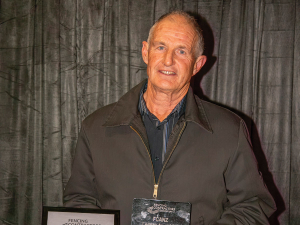Three years ago, NZ First introduced its Agricultural Debt Mediation Bill as a private member’s bill. There the political initiative looked destined to remain unless it was drawn from the ballot.
At the time, though – and still today – the evidence suggested that the subject deserved a wider airing. This was not just in respect of the bank-related issues, which the proposed legislation sought to address. It was for a much-needed wider role of mediation in the rural sector.
The coalition agreement between Labour and NZ First provided for another look at farm debt mediation. A bill has since been introduced to Parliament, where it has been referred to select committee. The final details are yet to be ironed out.
Unusually, and gratifyingly, this bill enjoys widespread support across party lines.
The newfound momentum comes at a critical time for the country’s rural sector.
If the work of the Arbitrators’ and Mediators’ Institute of New Zealand is anything to go by, the growing degree of rural anguish — whether to do with financial stress, sharemilking matters, trust issues, family, employment disputes or contractual stoushes — suggests the need for skilled mediation has never been greater.
Often these disputes are highly, bitterly and unproductively personal. They’re also very costly for those involved and ultimately to their wider communities.
Right now, of course, farm debt is the major concern. Most banks say they are already mediating issues on it -- negotiating with farmers and trying to assist them.
But what banks say is only part of the story. The banks are not compelled to go down the mediation path. And this lack of a required third-party mediator, rather than what often is simply a mere advocate, can create serious problems.
“The interweaving of personal and family aspirations can make for a potent mix where farmers are experiencing economic or viability difficulties,” says mediation expert John Larmer.
Larmer is a rural professional who specialises in advisory, valuation and land issues and dispute resolution. He says mediating requires skills and experience and a comprehensive knowledge of agricultural systems and rural economics.
In other words, the better the calibre of mediator one has — somebody trained, qualified and credentialed — the higher the probability of a resolution people can live with.
That’s why at AMINZ we have a thoroughly vetted list of professionals for rural disputes. We also operate, under agreement with Federated Farmers, the national panel of conciliators specifically trained for sharemilking disputes. The better the chance of an attractive resolution, the higher the amount of goodwill that will probably be gained in the process. Not to mention money saved by avoiding the costs of litigation, with all its associated risks, damage to morale and the business.
John Larmer also makes the point that many of our local banks are largely Australian-owned and run out of Australian states, which have statutory farm debt mediation schemes. Yet these processes have had no official traction in NZ.
The banks and other rural lenders would also benefit from getting an independent mediator involved.
• Deborah Hart is executive director of the Arbitrators’ and Mediators Institute of New Zealand.

















